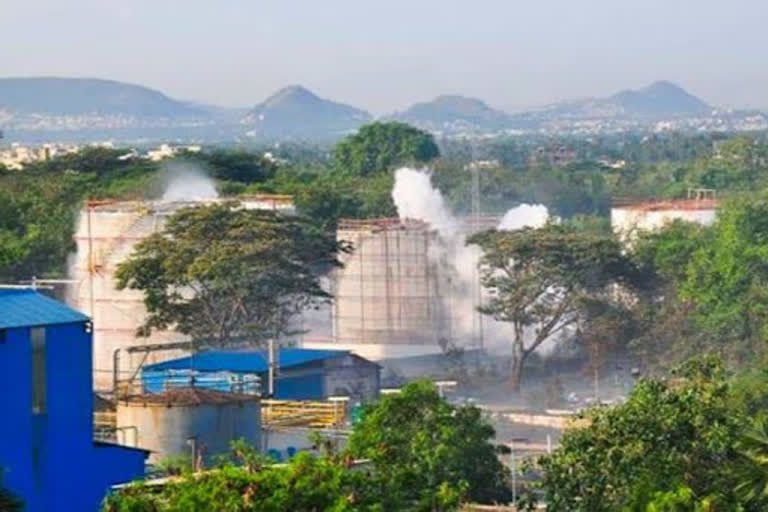New Delhi: Why and how the styrene fumes leaked and engulfed the LG Polymers industrial plant and surrounding villages on Thursday early morning in Visakhapatnam may endure for long as a mystery, a chemical engineer who handled styrene in the same plant for 11 years has said.
Anantram Ganapati, a Visakhapatnam-based chemical engineer who worked in the same plant at the industrial area from 1982 to 1993 told ETV Bharat: “I have worked with styrene for a good part of my life, have handled it both as a product and as a raw material and can say confidently that it is just like any other chemical that needs to be handled with due diligence and respect.”
“A similar incident never happened at any point when I was there. It is a very very rare occurrence and rather unheard of in the industry. Only once has it happened in a foreign country many years ago.”
Conceding that he was not sure as to why the styrene overheated, Ganapati said possible reasons could be due to a polymer reaction that could trigger off automatically.
“Something may have triggered the polymerization which becomes difficult to control once it starts. Although efforts are on to find out what triggered the overheating, I do not think it can be easily found out. There is no fire or anything. It is just that the styrene starts boiling and vapours appear.”
Ganapati had executed several revamp projects in the styrene plant and was also the assistant plant manager of the styrene plant when it was known as the Hindustan Polymers, a division of McDowell & Co. Ltd. of the UB Group, before it was taken over by the Korean electronics giant LG.
After a long period of the nationwide lockdown, the LG polymers plant had just restarted operations when the leak happened at around 2:30 AM Thursday morning. Asked if it had anything to do with the long period of lockdown due to the COVID 19 pandemic, the chemical engineer said he “didn’t think so”.
Styrene fumes, used for making plastic and resins among a host of other industrial applications, engulfed the nearby areas, largely comprising villages, suffocating at least 11 people to death while more than a thousand are being treated in hospitals.
Saying that anything can happen when there is panic and fear of the unknown, Ganapati said: “The deaths could be due to a person being engulfed in the vapours and not having enough oxygen to breathe within the vapour. This is a phenomenon called asphyxiation.”
With a boiling point of 145 degrees centigrade, styrene is a monomer or a single molecule is the basic unit for polymers, which binds to other monomers to build blocks of proteins.
A liquid aromatic hydrocarbon, it is stored at lower than ambient temperatures. But if its temperature rises beyond ambient conditions, it releases vapours and also starts polymerising.
Meanwhile, the National Green Tribunal (NGT) in a suo-motu action, has imposed an interim fine of Rs 50 crore on LG Polymers while pointing out that there were compliance issues besides violation of statutory provisions.
Also Read: Naidu urges PM for scientific probe into Vizag gas leak mishap



